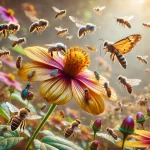The care of bees is an essential practice that goes beyond traditional beekeeping; it is about preserving a vital component of our ecosystems. Bees are not only responsible for honey production, but they also play a crucial role in the pollination of crops and wild plants, which supports biodiversity and global food security. However, in recent decades, bees have faced numerous threats, such as habitat loss, excessive pesticide use, diseases, and climate change. Therefore, the care and protection of bees has become a shared responsibility that involves everyone from beekeepers and gardeners to researchers and environmentally conscious citizens.
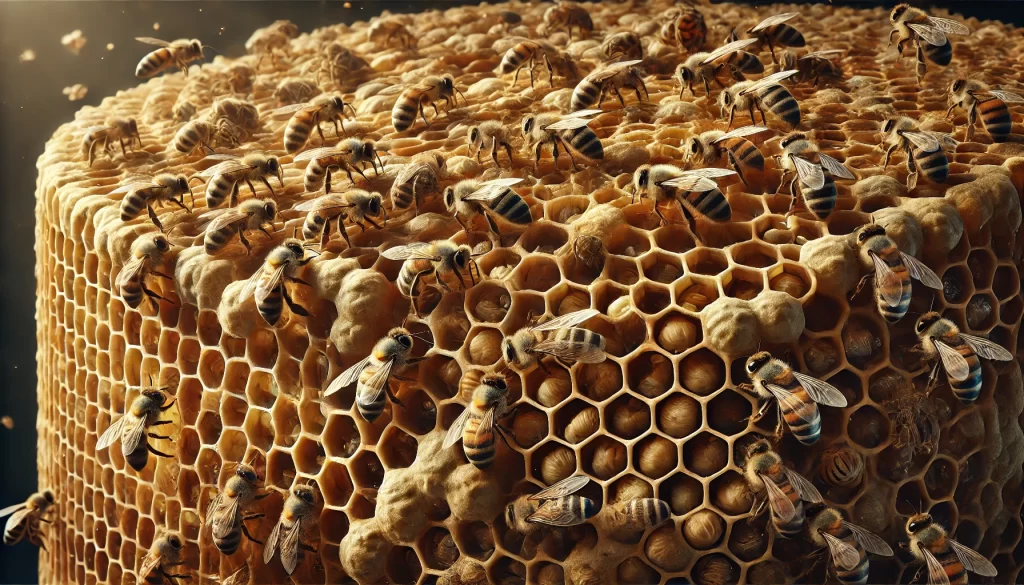
How to care for bees?
Caring for bees is vital not only for their survival but also for the health of ecosystems and agriculture worldwide. Here are some key aspects of bee care:
- Providing a Safe Habitat:
- Ensure that bees have access to clean water.
- Plant native flowers and crops that are beneficial to bees throughout all seasons. Bees need pollen and nectar to survive, so having a variety of plants that bloom at different times of the year can greatly help them.
- Avoid using pesticides or try to use organic and less harmful alternatives. Pesticides can be extremely toxic to bees.
- Hive Management:
- If you decide to keep hives, make sure to learn about proper management. This includes knowing how to inspect hives, manage colony health, and protect them from diseases and parasites like the Varroa mite.
- Provide enough space in the hive to avoid overcrowding and promote healthy honey production and bee rearing.
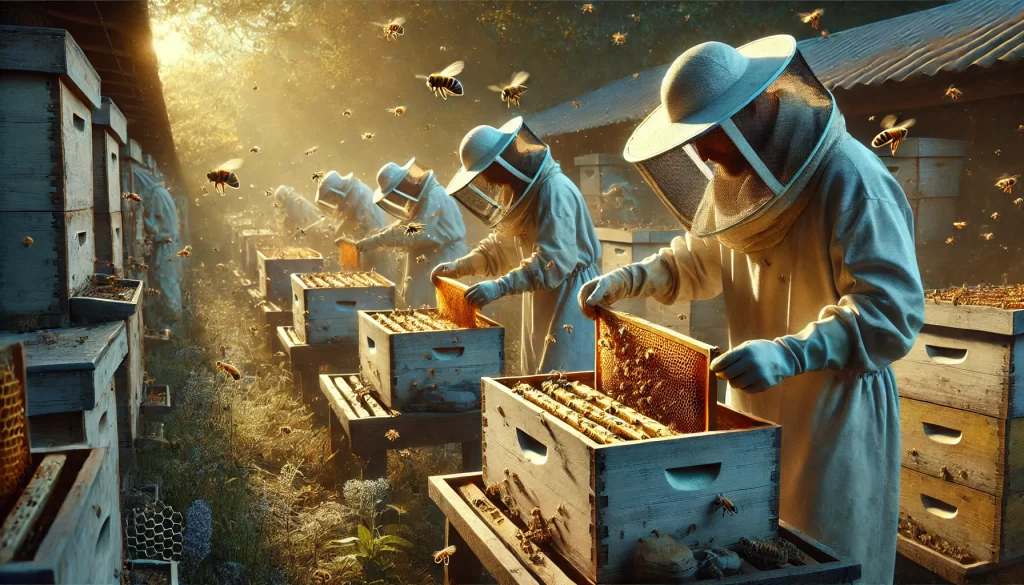
- Protection against Diseases and Parasites:
- Regularly monitor hives for signs of diseases or parasite infestations. Treat infected hives promptly to prevent the spread of diseases.
- Use integrated control methods to manage parasites, combining mechanical, biological, and chemical techniques as needed.
- Education and Awareness:
- Participate in or support education about bees and beekeeping in your community to raise awareness about the importance of bees.
- Collaborate with local beekeepers and conservation organizations to promote practices that support bee health.
- Support for Research and Conservation:
- Contribute to research on bees and their conservation if possible. Research can help improve hive management practices and develop new strategies to combat threats to bees.
Caring for bees is an ongoing commitment that requires constant attention and effort. Their well-being is crucial to our own survival, given their irreplaceable role in pollination and biodiversity.
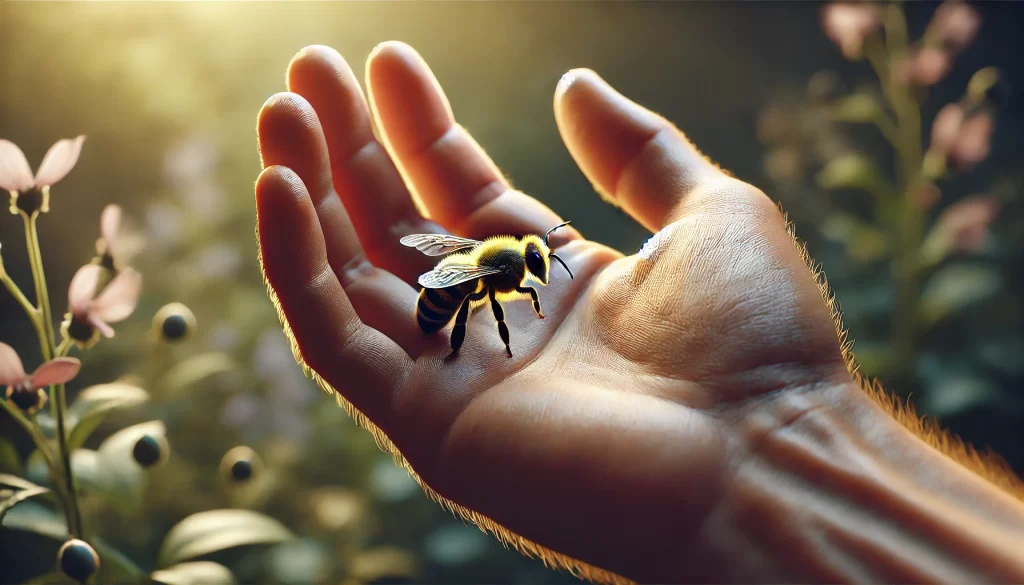
The Importance of Bees in Agriculture
Bees play a fundamental role in agriculture due to their ability to pollinate a wide variety of crops, which is essential for food production. Here’s why bees are so important to agriculture:
Crop Pollination
- Cross-Pollination: Bees are responsible for the cross-pollination of approximately 75% of the world’s flowering plants, including many food crops. Cross-pollination is vital because it increases genetic diversity, which improves plants’ resistance to diseases and adverse environmental factors.
- Fruit and Vegetable Production: Many of the crops that are part of our daily diet, such as apples, almonds, strawberries, tomatoes, and pumpkins, depend on bees for pollination. Without the intervention of bees, the quantity and quality of these foods would be significantly reduced.
- Increased Yields: Pollination by bees not only ensures fruit production but can also increase the size and quality of the product. For example, crops pollinated by bees often produce larger fruits and in greater quantities, which translates into higher yields for farmers.
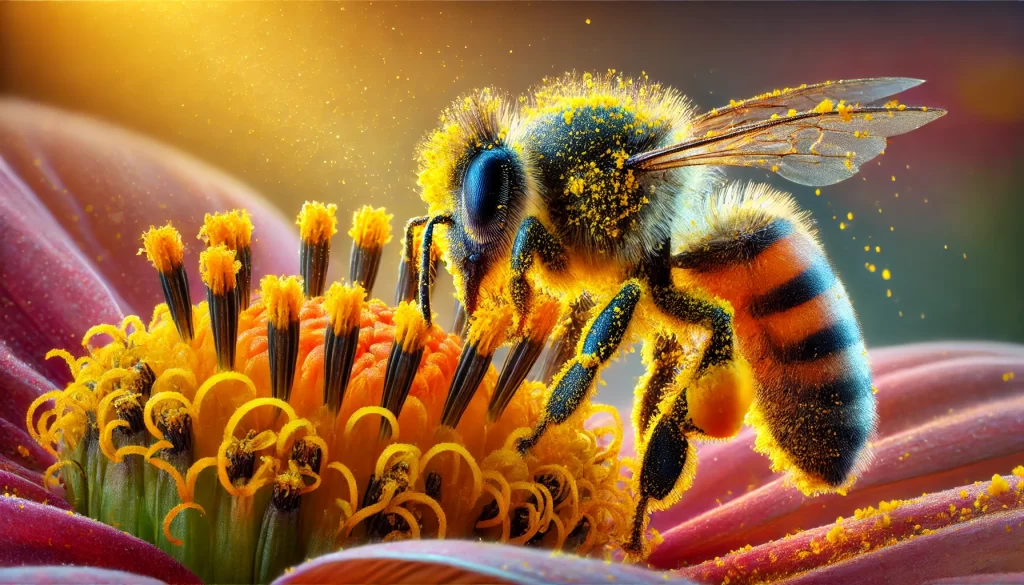
Food Diversity and Food Security
- Crop Diversity: Pollination by bees allows for the production of a wide variety of fruits, vegetables, nuts, and seeds, which contributes to the diversity of our diet. This is not only important from a nutritional perspective but also strengthens global food security.
- Maintenance of Agricultural Ecosystems: Bees help maintain plant diversity in agricultural ecosystems. This is crucial because monocultures (cultivation of a single species) are more susceptible to pests and diseases. The presence of bees and other pollinators contributes to the overall health of the agricultural ecosystem, promoting biodiversity and reducing the need for pesticides.
Economic Impact
- Direct Economic Value: The economic value of pollination by bees and other pollinating insects is estimated to be worth billions of dollars annually. This contribution is essential for the economic viability of agriculture in many regions of the world.
- Support for the Beekeeping Industry: In addition to their role in pollination, bees are the foundation of the beekeeping industry, which produces honey, beeswax, propolis, and other derived products. This industry not only has economic value on its own but also promotes employment and rural development.
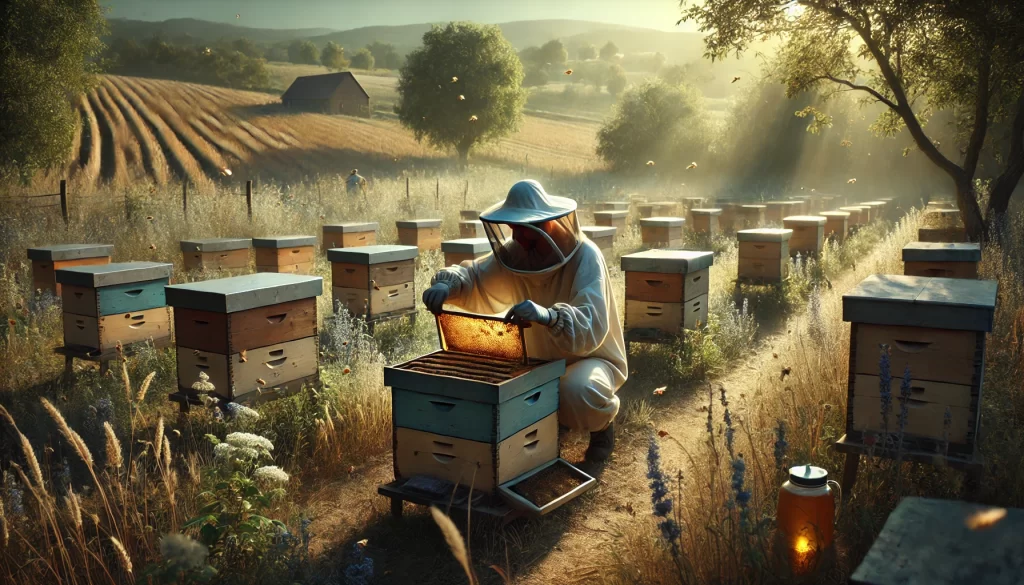
Threats and the Need for Protection
- Decline in Bee Populations: In recent years, there has been a concerning decline in bee populations due to factors such as intensive pesticide use, habitat loss, diseases, and climate change. This decline threatens bees’ ability to perform their crucial pollination work, which could have severe consequences for agriculture and food production.
- Conservation Efforts: To ensure the sustainability of agriculture, it is crucial to implement measures to protect bees, such as creating suitable habitats, reducing the use of harmful pesticides, and promoting pollinator-friendly agricultural practices.
 AgronoBlog – Agriculture Blog
AgronoBlog – Agriculture Blog 